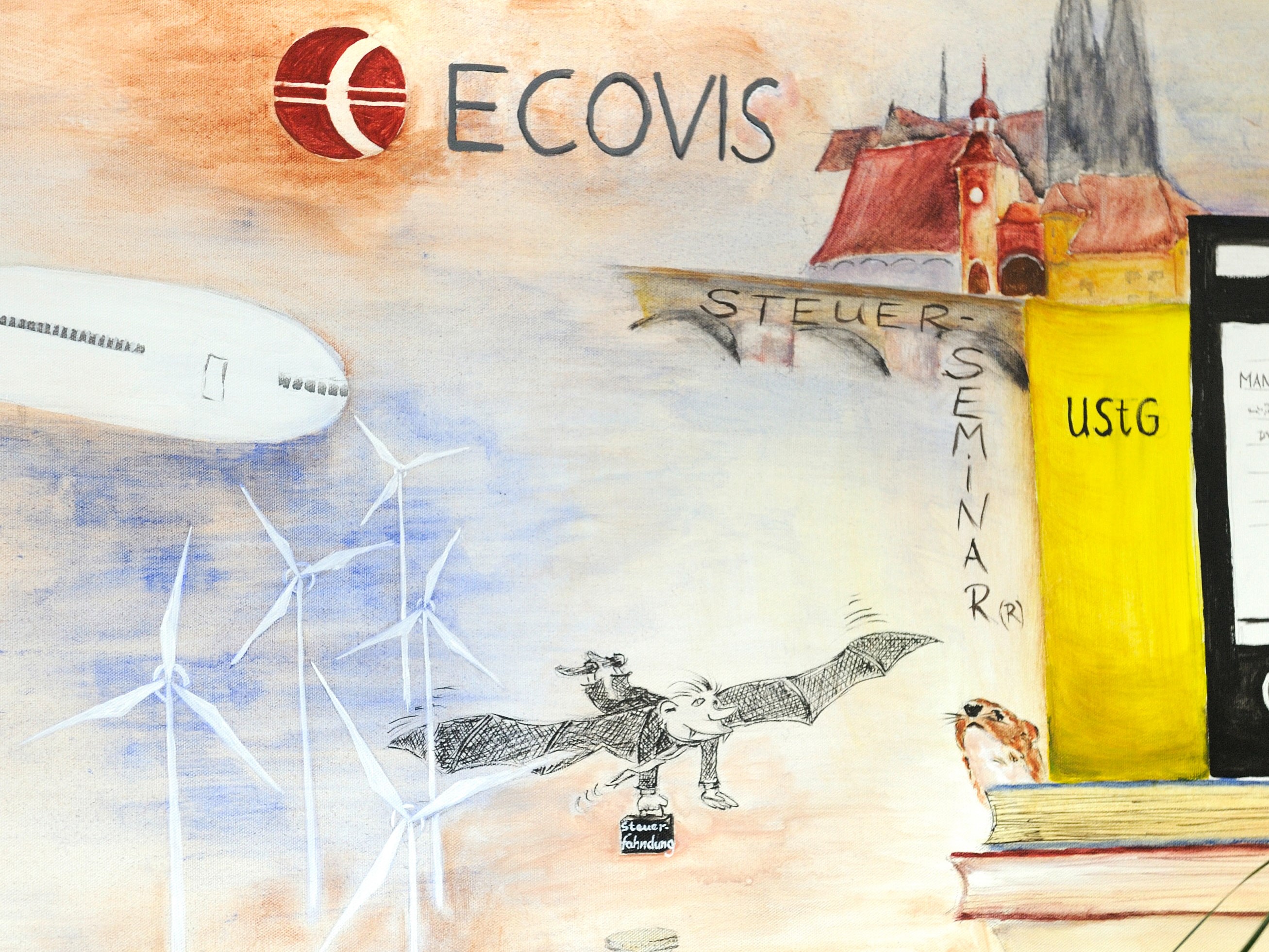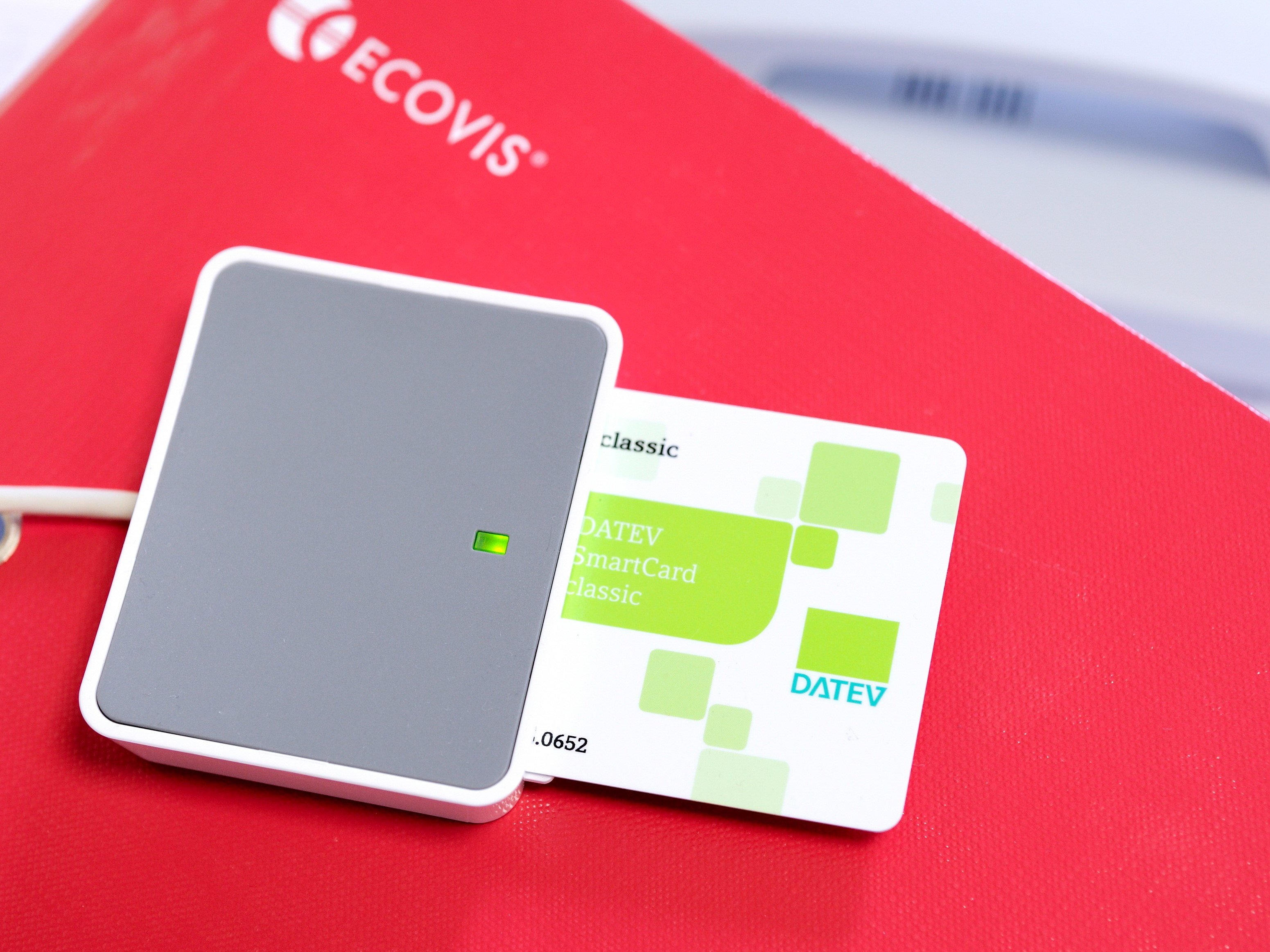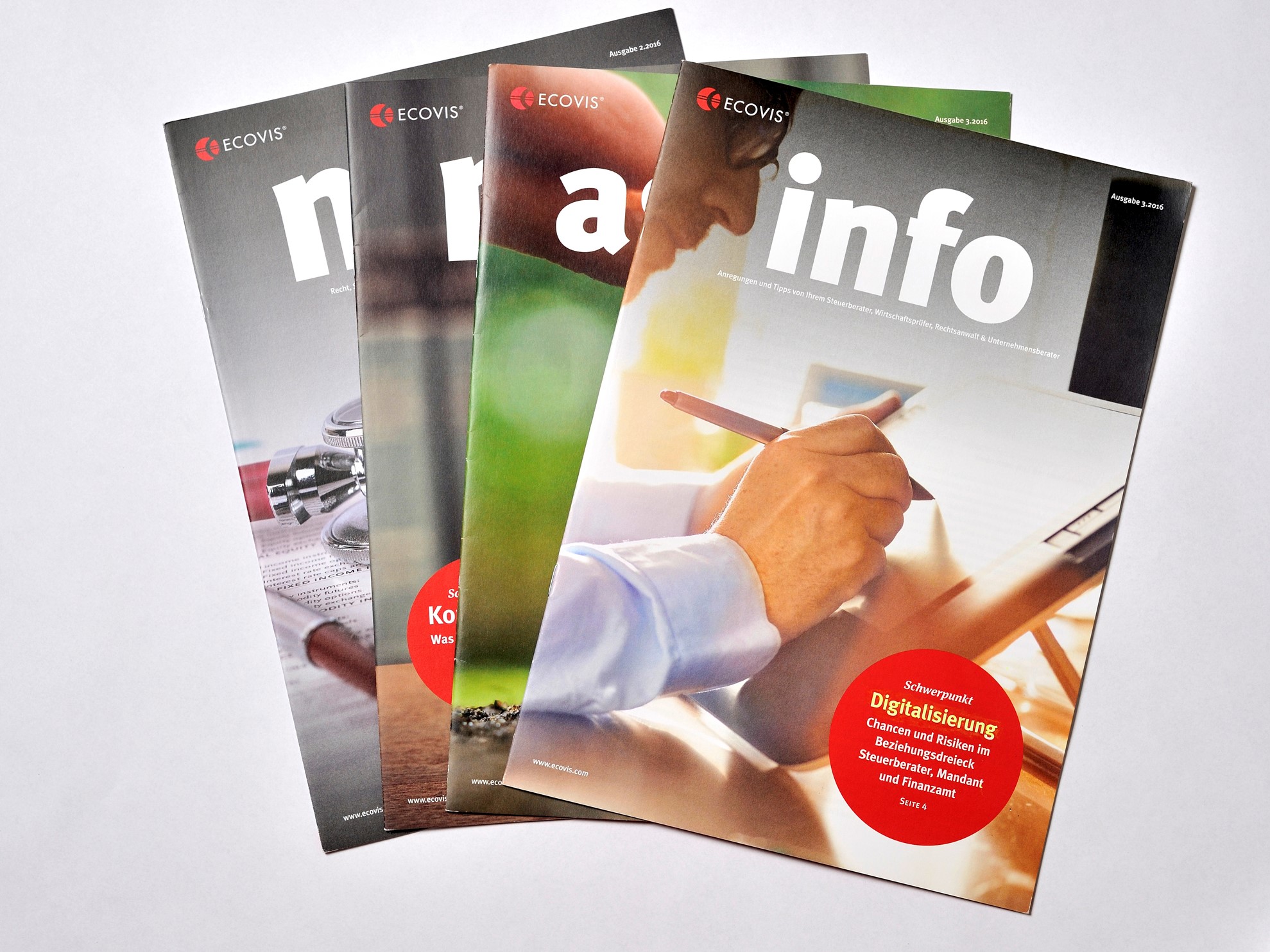Registration of Czech beneficial owner in Czech register of beneficial owners
With effect from 1 January 2018, the amendment to Czech Act No. 304/2013 Coll., on the Czech Public Registers of Legal and Natural Persons and on the Register of Trusts (the “Czech Act on Public Registers”) came into force, which introduced the obligation of legal persons entered in the public register and of the trusts to mandatorily record (write down) their beneficial owners in the private section of the register (the “register of beneficial owners”). The definition of a beneficial owner is based on Czech Act No. 253/2008 Coll., on Certain Measures against the Legalisation of Proceeds from Crime, and the Financing of Terrorism (“AML”), whose revised version came into force on 1 July 2017. By that revised version, the Czech laws transpose the amendments contained in 4 AML Directive, which came into force on 25 June 2015 and which was to be transposed by the Member States by 26 June 2017, and Regulation (EU) 2015/847 of 20 May 2105 on the Information Accompanying the Transfers of Funds.
The Czech beneficial owners register is a public administration information system, which records data on beneficial owners defined by law. Entries are made either by the competent registry court, or the notary. Records of beneficial owners are not public. Therefore, it cannot generally be looked into, searched, and is not a public register within the meaning of the Czech Act on Public Registers. This means, among other things, that the regime known for the public registers will not apply to it. There is no regime of material publicity, only the registered person or the trustee is entitled to file an application for registration, there is no registration procedure, no direct sanctions are imposed for the non-fulfilment of the registration obligation, etc. Besides the regime of public registers according to the Czech Act on Public Registers, there are 5 other registers in the Czech Republic: (1) the register of public research institutions, (2) the register of school legal persons, (3) the register of registered churches and religious societies and other legal persons, (4) the register of hunting societies, and (5) the register of political parties and political movements. All legal persons entered in these registers are subject to the obligation to have information about their beneficial owners, but there is no obligation to record this data on the beneficial owner in these special registers, nor in the register of beneficial owners.
The Czech register of beneficial owners is currently specifically intended for use by legally-defined persons and authorities in connection with their legal obligations (law enforcement bodies, Financial Analytical Authority, etc.).
Legal persons entered in the Czech Commercial Register must register their beneficial owners by 1 January 2019; other legal persons entered in other public registers (including trust funds entered in the register of trusts) must register their beneficial owners by 1 January 2021.
The records of Czech beneficial owners are maintained on the website: https://issm.justice.cz/.
ECOVIS ježek, the Czech law firm can ensure for proper registration of beneficial owner in the Czech register of beneficial owners
Mojmír Ježek has extensive experience with registration of beneficial owner in the Czech register of beneficial owners. You can reach Mojmir and ask him for details about the registration process, extent of documents to be provided etc.
You can also engage our Czech law firm to ensure for the proper registration by us as qualified experienced Czech lawyers.
t: +420 226 236 600 | e: mojmir.jezek@ecovislegal.cz
Definition of a Czech Beneficial Owner
According to AML, the beneficial owner is a natural person, or persons, who has/have a legal or factual right to exercise directly or indirectly a decisive influence on a legal person, trust fund, or other legal arrangement without legal personality.
The beneficial owner can generally be labelled as a person having no one else who is above him/her, and who basically manages the activity of the legal person and/or profits from its activities. The beneficial owner is typically the one who holds a significant stake in the entity, or receives a significant proportion of its income.
Determining the beneficial owner is the task of each legal person (or trust fund). It is therefore up to the legal person, or members of its bodies, to identify the beneficial owner. This obligation stems from §29b paragraph 1 of the AML.
The legal person maintains and continuously records the current data to identify and verify the identity of its beneficial owner, including facts forming the status of the beneficial owner, or other justification as to why that person is considered to be the beneficial owner. The method of identifying a beneficial owner may vary with respect to the legal form of the legal person with which the beneficial owner is found. Finding a beneficial owner can then be more complex for those subjects that are part of a wider structure.
The Czech AML Act lays down in §4 paragraph 4 certain rules under which it is possible to proceed with the identification of the beneficial owner. The objective is to identify the beneficial owner in terms of his/her material definition, i.e. who has the de facto or legal power to exercise directly or indirectly a decisive influence on a legal person (or trust). Indications set by the law do not in themselves indicate the beneficial owner. E.g. disposal with a certain proportion of the voting rights may point to the beneficial owner’s position, but it does not necessarily have to be form its basis. However, the indications established by the law take account, in the light of the individual legal forms, of the type or usual cases which may create the status of a natural person as the beneficial owner. In relation to individual groups of legal persons (and legal arrangements), the following can be mentioned.
Business corporations
For business corporations, the statutory defining feature of the position of the beneficial owner is that the person in question
1. alone or together with persons acting in concert, has more than 25% of the voting rights of that business corporation, or has a share in the registered capital greater than 25%;
2. alone or together with persons acting in concert, controls the person referred to in point 1; or
3. should be the beneficiary of at least 25% of the profits of this business corporation.
These indications are particularly useful in the case of a branch structure with multiple subjects in a chain, where one company has a share of another, and this in turn for others, and so on. In an attempt to trace the beneficial owner, it is always possible to focus on the share dominant company, and further explore its structure (partners or shareholders).
If, with the aid of the previously mentioned indications, it is not possible to identify a particular natural person as the beneficial owner, or if the person so designated is not the beneficial owner in terms of the material definition, the registered beneficial owner shall be a member of the statutory body of the legal person (or the representative of a legal person that is a member of the statutory body, exercising a post in the given legal person, or a person in a similar position as a member of the statutory body).
An example of a business corporation where the beneficial owner cannot usually be identified at all can be a listed share company with a scattered shareholding structure, or a co-operative with a large amount of members.
Czech Associations, public service companies, and associations (groups) of owners
For these legal persons, the statutory defining feature of the position of the beneficial owner is that the person
1. has more than 25% of its voting rights; or
2. should be the beneficiary of at least 25% of its allocated funds.
Beyond the statutory indicators of the beneficial owner, it can be assumed in the case of the above, usually non- profit, legal persons, that very often they do not really have the beneficial owner in terms of the material definition. In such a case, a person who is a member (or the representative of a member – a legal person) of the statutory body of the legal person is usually recorded in the beneficial owners register as the beneficial owner (similar to business corporations). This does not mean that, for example, an association cannot have a beneficial owner in terms of the material definition; such cases are not the rule.
The aforementioned also applies to other legal persons entered in the register of associations – subsidiary associations, foreign associations, affiliates of foreign associations, interest groups of legal persons, trade unions, international trade unions, employers’ organisations, and international employers’ organisations.
Czech Legal persons of a public-law nature entered in the public (commercial) register
As concerns legal persons having a public-law nature, it may be assumed that in some of them, the identification of the beneficial owner within the meaning of the material definition is, in principle, impossible. Therefore, in the case of subjects existing and operating in the public interest, a person who is a member (or the representative of a member – a legal person) of the statutory body of a person is typically registered as the beneficial owner.
Czech Institutions
For institutions, the statutory defining feature of the position of the beneficial owner may be that the person is
1. the founder of the institution; or
2. the person authorised to exercise supervision over the management of the institution (i.e. is a member of the controlling body).
Czech Foundations and endowment funds
For a Czech foundation or Czech Czendowment fund, the statutory defining feature of the position of the beneficial owner may be that the person is
1. the founder of the foundation or endowment fund;
2. by the person in whose interest the foundation or endowment fund was established or is operating; or
3. a person authorised to exercise supervision over the management of the foundation or endowment fund (i.e. is a member of the controlling body).
Czech Trust funds or foreign trust funds
For a trust fund or a foreign trust fund, the statutory defining feature of the position of the beneficial owner may be that the person is
1. the founder of the trust fund;
2. the trustee (administrator) of the trust fund;
3. the beneficiary of the trust fund; or
4. the person authorised to exercise supervision over the management of the trust fund.
Under Article 31 of Directive 2015/849, Member States are required to ensure that information on the beneficial ownership of a trust is kept in a central register. Information on the beneficial owner of a trust fund includes, in contrast to other entities, data on all persons mentioned in items 1 to 4. However, the data on these persons, whose relationship to the trust fund is legally based, is primarily recorded in the register of trusts. Therefore, it is no longer necessary to record it again separately in the beneficial owners register. Only the person of the beneficial owner determined according to its material definition shall be entered in the register of beneficial owners.
Czech Register of Beneficial Owners
As mentioned above, the records of beneficial owners are kept in electronic form by the registry courts on the website: https://issm.justice.cz/.
The law allows for the acquisition by a particular registered person, i.e. a legal person registered in the public register, or a trust fund registered in the register of trusts, of an extract from the records of the beneficial owners in relation to the data recorded by it. A partial extract from the records of the beneficial owners can be obtained by anyone who proves a so-called legitimate interest (see below).
Obtaining an extract by a registered person
The registered person may obtain an extract from the records of the beneficial owners in relation to the data on the beneficial owner entered by it. Such an extract can be obtained in two ways:
1. using an assigned unique identifier for the beneficial owner directly in the application of the beneficial owners register; or
2. by a request for the issue of an extract addressed to the relevant registry court.
ad 1) If the user clicks on the link https://issm.justice.cz/zobrazeni-vypisu (“Display my extract”) in the online application for the beneficial owners register, they are then asked to fill in their unique identifier for the beneficial owner. It is also necessary to choose whether a current or complete (i.e. historical) extract is required. If the unique identifier is entered correctly in relation to the entry in the beneficial owners register, an extract will appear. The displayed extract can be downloaded as a signed PDF document (an electronically signed extract).
How to get a unique identifier for the beneficial owner, what it is used for, and how it works, can be found at: https://issm.justice.cz/dalkovy-pristup/zadost.
ad 2) In general, a registered person may obtain an extract from the beneficial owners register directly from the competent registry court via the form: https://issm.justice.cz/dalkovy-pristup/zadost. An extract obtained in this manner can be electronically signed, or issued as a written, officially certified document.
Electronically signed extracts
An electronically signed extract (obtained via the application) is an extract in respect of the beneficial owner of a particular legal person (or trust) from the beneficial owners register, which was created as an electronic document in the form of a data message (within the meaning of Act No. 300/2008 Coll. on Electronic Acts and the Authorised Conversion of Documents). The document is electronically signed by a qualified system certificate of the relevant registry court, and contains all of the elements necessary for it to be considered as a credible and valid extract, comparable to documentary extracts. However, it should be borne in mind that by simple printing, the nature of the extract is degraded, and it cannot be used as a full-status document.
An electronically signed extract can be obtained free of charge directly via the Internet application. If you obtain the signed PDF document from the online application of the beneficial owners register, it is possible to apply to it the authorised conversion mechanism pursuant to Czech Act No. 300/2008 Coll. This service is provided by public administration contact points to the public (so-called CzechPOINT).
An electronically signed extract can also be obtained from the relevant registry court. However, a fee is charged for this option.
Written officially certified extract
A written extract can be obtained from the competent registry court. A fee is charged for this option.
Obtaining a extract by anyone on the basis of a so-called legitimate interest
A part of the data kept in the records of beneficial owners is accessible to the person who demonstrates a so-called legitimate interest to the court (within the meaning of Section 118g paragraph 2 of the Act on Public Registers). A legitimate interest is an interest in the prevention of participation in an criminal act, participation in a criminal act due to negligence, the legalisation of proceeds from crime, the legalisation of proceeds from crime due to negligence and their source crimes, and the crime of financing terrorism according to § 312d of the Criminal Code.
A legitimate interest can be perceived as a kind of public interest, i.e. interest important and beneficial to the public. Eligibility must always be assessed in relation to the particular situation. It will always be necessary to take into account the specific person, the specific reasons, and the specific relationship.
In general, a person who may have a legitimate interest is one who, on the basis of a particular situation, can use the relevant data to confirm or refute his suspicion of crime. In principle, we can talk about identifying a certain suspicion, i.e. something that does not fall exclusively within the activity of state authorities. Specifically, a person who may have the above-described interest may be, for example, a subject that operates public funds and can therefore be exposed to risks of corruption. It may also be a contractual partner who, in legal contact with a legal person, learns of circumstances that might give rise to his obligation to report a criminal offense under §368 paragraph 1 of the Criminal Code.
A request for an extract based on a so-called legitimate interest is filed with the relevant registry court. The application must comply with the general requirements for filing in accordance with §42 paragraph 4 of the Civil Procedure Code, so it must be clear to which court it is addressed, who is carrying it out, which matters it concerns, and what it is aimed at, and must be signed and dated. In addition, the circumstances giving rise to a legitimate interest need to be stated and documented.
If the court finds that the person has a legitimate interest in obtaining an extract, it shall issue it to him. A valid extract that includes the name, country of residence, year and month of birth, and the nationality of the beneficial owner and particulars of what constitutes the beneficial owner’s status, is issued. This partial extract in respect of the beneficial owner can be obtained in both electronic and paper forms (see above).
Remote access
A complete extract from the beneficial owners register can also be obtained on the basis of so-called remote access. However, this method does not serve the public, but is reserved for designated persons and authorities in relation to their statutory obligations (comp. § 118g paragraph 3 of the Act on Public Registers), i.e.:
* courts for the purposes of legal proceedings;
* law enforcement agencies (for the purposes of criminal proceedings), and the public prosecutor’s office also for non-criminal purposes;
* tax administrators for the purposes of their administration;
* intelligence services;
* the Financial Analytical Authority, the Czech National Bank, and other bodies in the performance of activities under the Act, or the Act on the Implementation of International Sanctions;
* the Czech National Bank in the performance of supervision over persons operating in the financial market;
* the National Security Authority, the Ministry of the Interior;
* the Supreme Audit Office;
* an obliged person in accordance with the Act, in connection with the identification and control of the client;
* providers of public financial support;
* the managing authority, the intermediary body, the certifying authority and the audit authority for the purposes of the exercise of their powers under funds regulation (the European Regional Development Fund, the European Social Fund, the Cohesion Fund, the European Agricultural Fund for Rural Development, and the European Maritime and Fisheries Fund);
* the payment agency and the certifying authority for the purpose of exercising their powers under the financing regulations, the management of the monitoring of common agricultural policy;
* those provided for under special laws or acts.
More detailed information on remote access to the beneficial owners register can be found at: https://issm.justice.cz/dalkovy-pristup/info.
The extract of the data from this register will be provided to the registered person, and to a limited extent to any person who demonstrates interest in the prevention of participation in an criminal act, participation in a criminal act due to negligence, the legalisation of proceeds from crime, the legalisation of proceeds from crime due to negligence and their source crimes, and the crime of financing terrorism, and terrorist offenses under § 311 paragraph 2, third separate line, of the Criminal Code.
Scope of the data recorded in the Czech Register of Beneficial Owners
The obligation to submit a proposal for the entry of the data on the beneficial owner shall be the responsibility of the relevant legal person, trust fund, or other subject specified above. In practice, therefore, the persons responsible for that are the managing directors of an s.r.o. company, the members of the board of directors of an a.s. company, and the members of v.o.s. and k.s. companies. Legal entities entered in the Commercial Register are obliged to file an application for the registration of the following data without undue delay after 1 January 2018. For a period of one year (i.e. until 31 December 2018), such legal persons shall be exempted from the 1,000 CZK court fee. Legal persons entered in the Commercial Register after 1 January 2018 are also obliged to submit an application for registration without undue delay, but they will not be exempted from the court fee. Legal entities not entered in the Commercial Register and register of trusts will be fully exempted from the court fee. These entries can also be made by a notary, in addition to the registry courts.
The following data will be entered into the register:
* the name and address of the place of residence, or the place of domicile, if different from the address of the place of residence;
* date of birth, and birth number if assigned;
* nationality; and
* data on
1. share of the voting rights, where the position of the beneficial owner is directly based on his/her interest (shareholding) in a legal person;
2. share of the distributed funds, if the position of the beneficial owner is based on the fact that he/she is the recipient thereof; or
3. other facts if the position of the beneficial owner is otherwise established.
Together with the proposal for entering the data on the beneficial owner, it is necessary to provide documents to prove this data. The law does not exhaustively specify which documents this should concern, but the explanatory memorandum states that in a number of cases, it will be possible to prove the beneficial owner by means of an affidavit.
The form is available at: https://issm.justice.cz/podani-navrhu/formular appears as follows:
The form serves both the application for the beneficial owner’s first registration, and the application to change or delete the beneficial owner’s data. The form is filled in directly in the web interface. It can then be downloaded, and either sent to the registry court in electronic form, or printed and sent to the registry court in paper form. After completing and saving the form, the user also obtains a so-called unique identifier for the beneficial owner.
The output of the electronically filled out form is a PDF document, which can be sent to the registry court in either electronic or paper form (§22 of the Czech Act on Public Registers). An electronically filled form can be printed and worked with as a documentary application. The applicant’s signature on a documentary application must be officially verified. The application for registration in electronic form must be signed using a qualified (in Czech “uznávaný”) electronic signature, or sent via the data box to the person lodging the application for registration.
The completed form must be addressed to the local registry court. This is the regional court, in whose district there is a general court of a registered person (i.e. a legal person or a trustee - § 118h paragraph 2 of the Czech Act on Public Registers). Only the registered person – i.e. the legal person that wants to register its beneficial owner, or the trustee of a trust fund whose beneficial owner is concerned, may be the applicant for the registration (or change of record) of the data on the beneficial owner. Of course, the applicant may authorise a third party to submit the application.
If the applicant is a foreign legal person (or a trust), the applicant must attach a notice on the delivery address in the territory of the Czech Republic, or an agent for receiving documents with a delivery address in the Czech Republic.
In accordance with § 19 of the Czech Act on Public Registers, the documents proving the facts to be registered must be attached to the application for entry in the register of the beneficial owners. It can be added that these documents are not intended to be recorded in the beneficial owners register. These documents are, in principle, two-fold.
(1) On the one hand, documents proving the identity of the beneficial owner whose identity cannot be verified from the domestic register of inhabitants. In such a case, an extract must be provided from the register of inhabitants or the corresponding document of the country of which the beneficial owner is a citizen.
(2) On the other hand, documents that prove the position of the beneficial owner. It is true that the court does not examine the content of these documents. Due to the variety of reasons for the position of the beneficial owner, these documents cannot be clearly determined or calculated. Frequently, the position of a beneficial owner will be evident from an entry in a public register, or from the founding deed of a legal person. In such a case, it may be assumed that, as a rule, the very data on the facts establishing the status of the beneficial owner, which will be easily verifiable from the entry in the public register, is sufficient; proof of this fact by any other instruments seems to be superfluous. Or it is sufficient to refer, in the attached document, to the documents already deposited in the collection of deeds of the public register. Likewise, the position of the beneficial owner may be substantiated, for example, by a list of shareholders, a shareholder agreement, a declaration of the beneficial owner, or only by a statement by that legal person. If the applicant requests that the content of these documents also be recorded in the register of the beneficial owners, the facts in question may be entered directly in the form of the application for registration (or amendment to the record) of the beneficial owner. The Act does not lay down specific formal requirements for these instruments.
Unique identifier for the Czech beneficial owner
The unique identifier (pseudonym) for the beneficial owner is a randomly generated code that generally serves to make users’ work with the beneficial owners register easier, given its non-public nature.
The unique identifier for the beneficial owner (hereinafter referred to as the “UIBO”) is represented by a series of characters, by which the user can identify itself vis-à-vis the application of the information system of the beneficial owners register. This will, in particular, make it easier to make any application to change the record in the beneficial owners register, and obtain an extract from the register.
Obtaining a the Czech unique identifier for the Czech beneficial owner
A UIBO can only be obtained through the form for the application for the beneficial owner registration (or subsequently through a proposed change form).
At the moment of successfully completing the form for the application for the beneficial owner registration, the user will be displayed a confirmation message with the UIBO that is paired with this form. The UIBO needs to be noted down or otherwise saved for further use.
Use of UIBO
Until the completed form is sent to the registry court, the UIBO serves to resume the application form (for example, to make amendments).
After the registration of the beneficial owner has been made, the UIBO obtained during the registration process may be used by the user (the applicant – registered person) in two situations. First of all, the registered person can get, using the UIBO, (1) a current extract in respect of the beneficial owner directly from the web application of the beneficial owners register. Furthermore, the UIBO can serve to (2) facilitate the creation of an application to change the beneficial owner’s record. When filling in a paired UIBO in the form of the application for a change of the beneficial owner registration, since the entered non-public information is pre-filled. The user can easily determine which data he/she wants to change on the form (overwrite).
Invalidation of UIBO
Each change made to the record of the beneficial owner in the registry results in the invalidation of the previous UIBO. Only one UIBO is necessary to acquire the current extract. In the context of the application to amend the record, the applicant will obtain a new UIBO (that is actually pending), but this is only for returning to the form. Only after the change is recorded, the new (still pending) UIBO replaces the original one. If the entry does not occur, the pending UIBO is invalidated (and the original UIBO still applies).
Obligation to store details of actual beneficial owners of Czech companies
Another obligation stemming from the AML amendment is the duty of legal persons to continuously record and maintain up-to-date data to identify and verify the identity of the beneficial owner, including the facts on which such a status is based. Legal persons shall keep such data for as long as the person is the beneficial owner, and for at least 10 years after the termination of such relationship.
In the event of missing data or doubts about the correctness, the legal person is obliged, at the request of the responsible person, the Office, the court, the criminal prosecution authority, the Financial Administration of the Czech Republic, or the Customs Administration of the Czech Republic, to state who is or was its beneficial owner, and to provide information necessary to determine his/her identity.
Sanctions and penalties in case of non-compliance
Despite its inclusion in the Czech Act on Public Registers, the register of beneficial owners is not a public register under this Act, so the relevant provisions on penalties for non-compliance are not applied to it. This indicates that a legal person cannot be directly sanctioned for non-fulfilment of the above obligations, nor formally requested by the court for correction.
In any case, it is necessary to point out that failure to submit an application for registration of beneficial owner data may have some negative consequences, in particular, exposure to suspicion during an inspection in the context of AML. Another negative effect of the non-fulfilment of this obligation is the possible inconsistency with Act No. 134/2016 Coll., on Public Procurement, according to which the contracting authority is obliged to request from the selected supplier, which is a legal person, the identification data of the beneficial owners of that person. Failure to submit such data is a reason to exclude such a participant from the contract-awarding procedure.
For more information, please contact:
JUDr. Mojmír Ježek, Ph.D.
Managing partner
ECOVIS ježek, advokátní kancelář s.r.o.
Betlémské nám. 6
110 00 Prague 1
e-mail: mojmir.jezek@ecovislegal.cz
www.ecovislegal.cz/en
About ECOVIS ježek advokátní kancelář s.r.o.
The Czech law office in Prague ECOVIS ježek practices mainly in the area of Czech commercial law, Czech real estate law, representation at Czech courts, administrative bodies and arbitration courts, as well as Czech finance and banking law, and provides full-fledged advice in all areas, making it a suitable alternative for clients of international law offices. The international dimension of the Czech legal services provided is ensured through past experience and through co-operation with leading legal offices in most European countries, the US, and other jurisdictions. The Czech lawyers of the ECOVIS ježek team have many years of experience from leading international law offices and tax companies, in providing legal advice to multinational corporations, large Czech companies, but also to medium-sized companies and individual clients. For more information, go to www.ecovislegal.cz/en.
The information contained on this website is a legal advertisement. Do not consider anything on this website as legal advice and nothing on this website is an advocate-client relationship. Before discussing anything about what you read on these pages, arrange a legal consultation with us. Past results are not a guarantee of future results, and previous results do not indicate or predict future results. Each case is different and must be judged according to its own circumstances.















